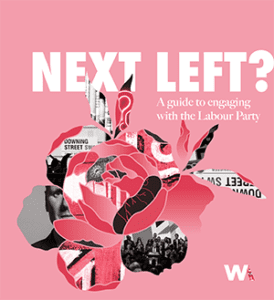
Next Left? A Guide to Engaging with the Labour Party
Labour is preparing for power and has a realistic chance of winning.
With an election expected to beheld within the next 18 months, this is the most important part of the electoral cycle for the Opposition. The build-up to an election is when a party can be hardest to read. Polls start to tighten. Public declarations are aimed at maximising electoral support. Behind the scenes subtler calculations are being made about what might be possible in government.
Under Keir Starmer’s leadership Labour has made clear it wants to be a pro-business government, and is keen to engage with business leaders.
Our guide explores how organisations can make the most of that invitation.
Next Left? A Guide to Engaging with the Labour Party [PDF]
Labour’s Industrial Strategy, published last September, sets out the party’s vision for the role of the state and of the private sector in achieving its grand ambitions for economic growth.
Business is put front and centre as the driving force behind better economic resilience, shared prosperity and increased living standards.
Private sector investment is also heralded as the catalyst for achieving ambitious policy outcomes – delivering clean power by 2030, harnessing data analysis and artificial intelligence to deliver better public services, and creating a care service that meets the needs of future generations.
With such a huge agenda, the role of business will be critical in helping add deep expertise, hard evidence and international experience to help Labour hit the ground running quickly.
The next few months are the pivotal period for organisations to engage with senior Labour figures and to make sense of what a Labour government would be like in reality.
Keir Starmer and his shadow cabinet teams are starting to draw up detailed policy plans for their manifesto, but not a great deal is set in stone yet.
Autumn should be seen as a key deadline – with the shadow cabinet told to present a credible alternative plan for government by the time of this year’s party conference.
This report sets out the party’s policy-making process and timings; the individuals and external bodies shaping the Shadow Cabinet’s thinking; and how proposals might make it all the way to the manifesto – assessing factors from the dynamics of the Leader of the Opposition’s Office, to the importance Keir Starmer places on research and focus groups, to the think tanks that ‘kite fly’ potential policy.
While parts of Labour’s policy programme remain under development, in many cases the direction of travel is becoming clearer.
We examine the key priorities for senior members of the Shadow Cabinet; the opportunities and risks for businesses; and how to engage and align – including deep-dives by our sector specialists on Childcare, Education and Skills, Energy, Financial Services, Health & Life Sciences, and Transport.
This guide is only one part of WA’s programme of insights on how to effectively engage with the Labour Party in the run-up to the general election:
WA has already hosted exclusive events with Rachel Reeves (Shadow Chancellor of the Exchequer), Wes Streeting (Shadow Health Secretary), Pat McFadden (Shadow Chief Secretary to the Treasury), Toby Perkins (Shadow Minister for Skills and Further Education), and Anas Sarwar (Scottish Labour Leader) – and we are planning more between now and the General Election.
(And of course we will continue to provide the same in-depth analysis of the current Government. The Conservatives will be in power for another year at least and we should never write off the chances of Rishi Sunak leading them to one of the more remarkable electoral comebacks in modern times).
We hope you find this guide a useful framework to understand the opportunities to engage with Labour at a pivotal period, shape the direction of the party’s policy development, and align your organisation with the Shadow Cabinet’s priorities.
Next Left? A Guide to Engaging with the Labour Party [PDF]
To explore our analysis in more detail, and understand how these points apply specifically to your organisation, sector and situation, please get in touch – by email at dominicchurch@wacomms.co.uk or on 020 7222 9500.
